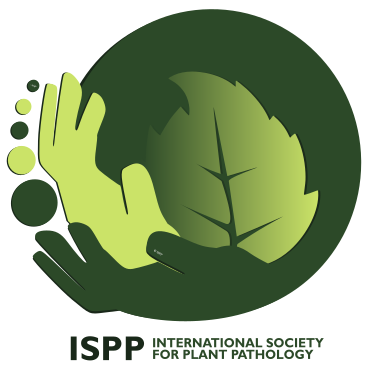|
9th INTERNATIONAL CONGRESS OF PLANT
PATHOLOGY
Healthy and safe food for everybody
Torino – Italy
Sunday 24 - Friday 29 August 2008
The
9th International Congress of Plant Pathology (ICPP2008) was
held at the Lingotto Conference Centre of Torino (Italy) from the 24th
to the 29th of August 2008.
The
event attracted almost 2000 delegates from 87 countries from around the
world. There were 270 invited speakers at keynote and concurrent sessions
and 1638 offered poster papers, some of which were also shortly presented
orally at the 51 concurrent sessions. There were 20 evening sessions and a
public discussion forum on “Plant Pathology and Global Foosd Security,
with invited speakers from emerging and industrialized countries.
The
congress was held under the High Patronage of the Presidency of the
Italian Republic and of the European Parliament, and received the
Patronage of the Italian Ministry for Environment, Land and Sea, the
Italian Ministry of University and Research, the European Food Safety
Authority, the Piedmont Region, the Province of Torino, The City of Torino,
the University of Torino and the City of Grugliasco.
During
the opening, the delegates were welcomed by Richard Falloon, President of
the International Society of Plant Pathology (ISPP), Sergio Roda,
Vice-Rector of the University of Torino, Giovanni Martelli, President of
ICPP2008, Maria Lodovica Gullino, Chairperson of ICPP2008. The congress
was opened by the speech of Corrado Clini, General Director of the Italian
Ministry for Environment, Land and Sea and by a lecture Timothy Hall,
Acting Director of the DG Biotechnology, Agriculture and Food of the
European Commission on “Plant health research in European programmes”
The
Congress then proceeded to offer a busy and exciting range of
presentations, which covered all disciplines within the field of plant
pathology. Stimulating discussions occurred in all sessions. This congress
was well supported by sponsors. The principal sponsors where Italian
Ministry for Environment, Land and Sea, Piedmont Region, Province of
Torino, University of Torino, Fondazione Cassa di Risparmio di Torino,
Compagnia di San Paolo, Agroinnova – Centre of Competence for the
Innovation in the Agroenvironmental Sector, 8th ICPP, North Atlantic
Treaty Organization, ISPP and Dow AgroSciences. Other sponsors included
the European Commission, the American Phytopathological Society, the
Canadian Phytopathological Society, the Chamber of Commerce of Torino,
Syngenta Crop Protection, Bayer CropScience, Isagro Italia, Lufthansa and
Rijk Zwaan.
Scientific
Programme
The
theme of the congress was "Healthy and safe food for everybody".
The five keynote sessions were from 0900 to 1030 each day with each
containing three speakers.
The
key topics were from Monday to Friday:
·
The role of plant pathology in food safety and food security
·
Host-pathogen interactions and molecular plant pathology
·
Diseases of Mediterranean crops and forests
·
Recent developments in disease management
·
Knowledge and technology transfer for plant pathology
During the week, there were
51
concurrent sessions, mostly with four speakers in each session. One
special session was the concurrent CS41, related to “Crop and Food
Biosecurity” and sponsored by the European Commission. Another
concurrent session, the CS20, related to “Risk assessment of plant
pathogens, mycotoxins and plant protection products: a scientific approach to food safety in Europe” was organized
and sponsored by the European Food Safety Authority.
In
addition to the 5 keynote sessions and to the opening session, there were
three more plenary sessions. One was organized on Monday August 25 from
19:30 to 22:00 by the ISPP Task Force on Global Food Security on “Plant
pathology and global food security”. The third plenary session was held
on Wednesday August 27 to celebrate the “Centennial of the American
Phytopathological Society” and organized by James Cook (Washington State
University, Pullman, USA) and Paul Peterson (Clemson University, Florence,
USA).
The
poster-viewing sessions were
vibrant, well attended and informative. The formal oral presentations of
selected posters gave several delegates the opportunity to discuss the
research in some more detail. In total, there were more than 1600 poster
presentations over the display sessions during the week. The abstracts of
the invited and offered papers were published on a special issue of the
Journal of Plant Pathology of 507 pages (Impact Factor: 0.98), available
also on CD-ROM.
Workshops
Associated with the Congress were 3 satellite
workshops, held at the Hotel Ambasciatori of Torino. The first workshop,
organized by Gloria Abad (North Carolina State University), was the 3rd
International Phytophthora and Pythium
Workshop: Integration of traditional and modern approaches for
investigating the taxonomy and evolution of Phytophthora,
Pythium and related genera”. The second workshop, organized by
Geoffrey Dixon (GreenGene International, Gran Bretagna), was the
“International Clubroot Working Group (ICWG) meeting: Plasmodiophorids
and related organisms”. The third one, organized by Lavern Timmer
(University of Florida), was dedicated to “Colletotrichum
Diseases of Fruit Crops”.
Bursary
Scheme
Thanks
to the generosity of several international, national and local
institutions, 126 bursaries were offered. The countries receiving the
highest number of bursaries were India, China, Thailand, Egypt and Brazil.
The single bursaries ranged from 800 to 2,300 €. The contributing
institutions were European Commission, NATO, ISPP, Piedmont Region,
Fondazione CRT and Compagnia di San Paolo.
Newsletter
and Social Programme
A
daily newsletter was produced to background delegates on the keynote
themes for the day. It also provided information on various attractions
around Torino, photographs of delegates and any general notices.
Different
social events were offered to the delegates. The welcome reception on
Sunday evening provided an opportunity for almost 1000 delegates to meet,
talk and taste some exciting food. On the Wednesday night, 600
participants took part to the dinner in the Langhe region, enjoying local
food and wine. On Friday night, the Congress dinner, after a wonderful
Opera show in the Auditorium of Lingotto Congress Centre, provided a range
of Italian foods and a great dance band.
Saturday
August 30, four technical excursions were organized in scientifically
interesting regions around Torino: one in the Aosta Valley on forest
pathology, the second one on horticultural crops in the Saluzzo area, the
third one in Pellice Valley on organic farming and Alpine botanical
gardens, and the last one on viticulture and wine production in Alba,
Langhe and Roero.
Concluding
Session
The congress concluded on Friday August 29 with
a closing session chaired by Richard Falloon, president of ISPP, that
during the plenary passed the presidency to the new president of ISPP,
Maria Lodovica Gullino of the University of Torino. During the session,
the Jakob Eriksson Prize was assigned by the Swedish Academy of Science to
Larry Madden, Ohio State University, that offered a lecture on modern
approaches to plant disease forecasting: the case of Fusarium head blight.
Finally, the ISPP congress flag was passed to the Chinese delegates who
have to arrange the tenth ISPP congress in 2013 in Beijing.
Maria Lodovica
Gullino
ISPP President
&
the Local Arrangements Committee
ICPP 2008
|



